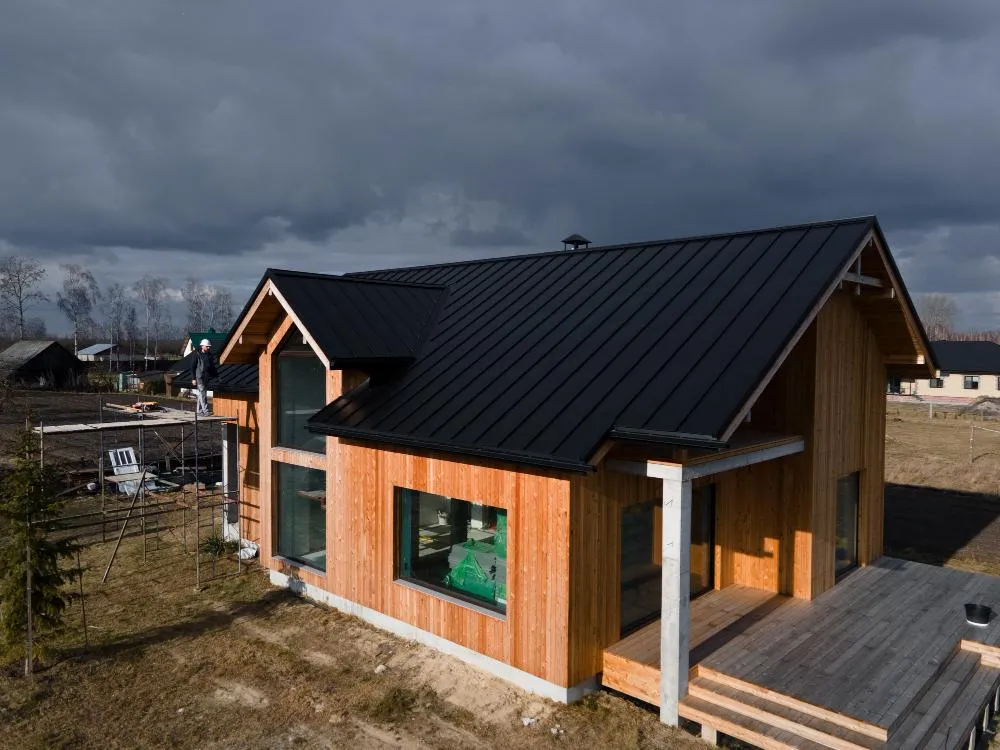
Blog

How Weather in Southeast Michigan Affects Your Construction Timeline
If you’re planning a new build, remodel, or addition in Southeast Michigan, you may be wondering how long it will take — and how much local weather will affect the schedule. With our cold winters, rainy springs, and unpredictable temperature swings, weather plays a much bigger role in construction than most homeowners realize.
This guide explains how Michigan’s seasonal climate impacts each phase of construction, what delays you should anticipate, and how to plan smart so your project stays as close to schedule as possible.
Why Weather Matters in Construction
Construction isn’t just about labor and materials — it’s also about timing. Many key stages rely on temperature, moisture levels, and ground conditions.
Weather impacts construction in several ways:
Concrete and masonry need certain temperatures to cure properly
Heavy rain can flood sites, delay excavation, and damage materials
Extreme heat or cold affects worker safety and productivity
Seasonal ground conditions (frozen soil, mud) affect equipment and foundation work
Understanding these factors allows you to schedule work during optimal times and build realistic expectations for your project timeline.
Seasonal Impact on Construction in Southeast Michigan
Before listing, keep in mind that every project is different. The effects below are general trends based on typical weather patterns in our region.
Winter (December – February)
Challenges: Frozen ground makes excavation difficult, snowstorms can shut down sites, and extreme cold slows concrete curing.
Solutions: Enclose work areas where possible, use heated tents or additives for concrete, and focus on interior work if the shell is complete.
Impact: Expect slower progress or pauses for site prep, foundations, and exterior framing.
Spring (March – May)
Challenges: Wet conditions create muddy sites, making excavation and grading challenging. Early spring thaws can also cause flooding.
Solutions: Use proper drainage and site prep to manage water. Schedule foundation work after consistent thawing and drying periods.
Impact: Good time for starting new builds once soil stabilizes, but rain delays are common.
Summer (June – August)
Challenges: Extreme heat can affect roofing crews and concrete pours. Afternoon thunderstorms can cause day-of delays.
Solutions: Plan exterior work and concrete pours early in the day, provide shade and hydration for crews, and secure materials against wind.
Impact: Typically the fastest progress season with longer daylight hours.
Fall (September – November)
Challenges: Shorter daylight hours, early frost, and unpredictable weather shifts can slow certain tasks.
Solutions: Prioritize exterior work early in the season to beat freezing temperatures. Move to interior finishes as weather cools.
Impact: Good season for remodels or additions, but exterior-heavy projects should be well underway before frost.
How to Plan a Weather-Smart Construction Timeline
Here are steps to minimize delays and keep your project on track despite Michigan’s unpredictable climate.
Schedule Wisely
Plan site work and foundation installation for late spring through early fall when conditions are most stable.Build in Flex Time
Include extra weeks in your schedule for weather delays, especially if you start in spring or winter.Use Weather-Resistant Materials
Protect framing, sheathing, and finishes with proper covering if bad weather hits unexpectedly.Secure Permits Early
Avoid paperwork delays that could push construction into a worse weather window.Communicate With Your Contractor
A contractor experienced in Southeast Michigan knows when to push ahead and when to pause to avoid long-term issues.Plan for Seasonal Transitions
Aim to “dry in” (finish roof and exterior shell) before heavy snow or freezing weather so interior work can proceed uninterrupted.
Frequently Asked Questions
Can construction continue during the winter?
es, but at a slower pace. Heated enclosures and additives allow some work to continue, but costs may be higher.
How much delay should I expect due to weather?
Plan for at least a few weeks of potential weather-related downtime over the course of a full build.
What’s the best time of year to start building in Michigan?
Late spring through early summer is ideal for excavation and foundations, giving plenty of time to get the structure enclosed before winter.
Can rain damage construction materials?
Yes, untreated lumber and drywall can warp or mold if left wet. Good contractors protect materials on-site.
Does weather affect interior remodeling projects?
Less so, but deliveries, inspections, and exterior modifications can still be delayed by storms or road conditions.
Conclusion
Weather in Southeast Michigan plays a major role in construction timelines. From frozen ground in winter to spring rain and summer heat, every season brings unique challenges. By planning your start date strategically, working with a contractor who knows the local climate, and building flexibility into your schedule, you can reduce delays and keep your project moving toward completion.
Our Services
Helpful Links
Service Areas
© 2025 All Rights Reserved | A & K Construction